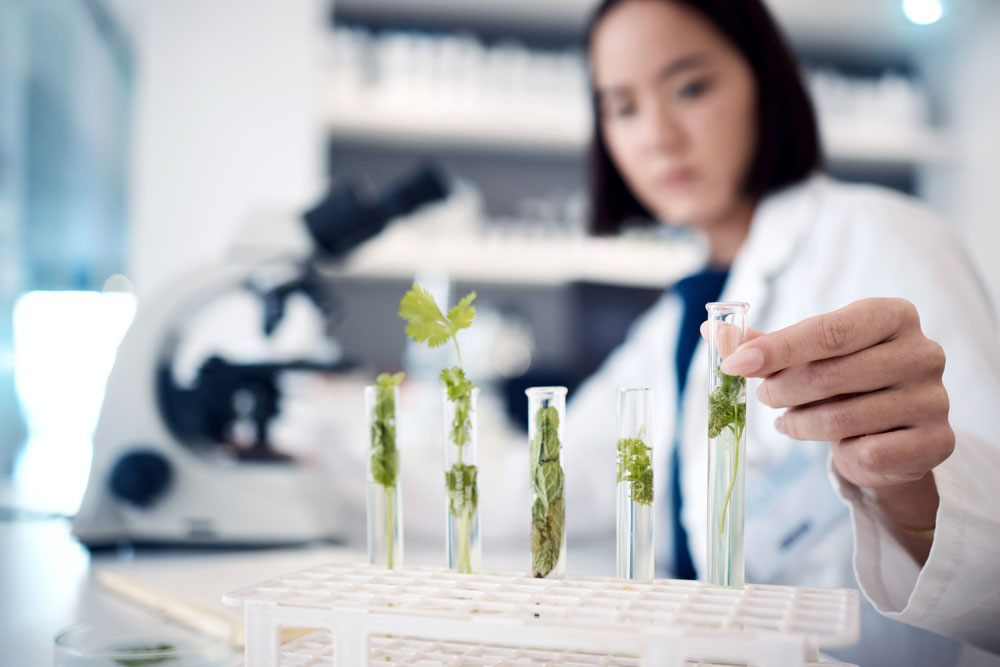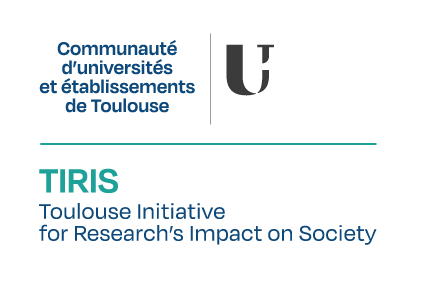The three thematic pillars
Engaging science to meet the major challenges of the 21st century
The TIRIS programme – Toulouse Initiative for Research’s Impact on Society – is based on a strong conviction : science has a key role to play in building a more sustainable, inclusive and responsible future. To respond to the major challenges facing society, inspire the renewal of public policies and support the transformation of lifestyles and production methods, TIRIS is based on three strategic thematic pillars.
These pillars have been defined on the basis of the scientific strengths of the Toulouse site, its specific disciplinary features recognised at national level, and the opportunities for inter-institutional collaboration made possible by the collective dynamic. Designed by the academic communities themselves, under the scientific coordination of Michael Toplis, they aim to encourage interdisciplinarity and inter-science synergies between the exact sciences, the life sciences and the humanities and social sciences.
Each of these three main areas structures the initiatives of the TIRIS programme and guides the projects supported under its programmes and schemes.



Living well means living in good health at all ages, benefiting from a healthy diet, a favourable environment and socio-economic conditions, as well as an efficient healthcare system.
To meet this challenge, the Toulouse Community of Universities and Colleges will encourage exploratory research using a multi-scale approach, from the molecular level to socio-ecosystems. This will help to produce new knowledge on the complex effects of environmental and social factors on the quality of life of humans, animals and plants.
The Toulouse Community of Universities and Colleges will also foster new interactions between basic life sciences, AI, applied disciplines (such as clinical, agronomy and engineering) and the humanities and social sciences with the aim of contributing to new innovative solutions to promote healthy living. Such solutions will address the key issue of healthy ageing, as well as personalised medicine and agro-ecological transitions. The contribution of social sciences will be decisive in understanding the conditions for adopting such solutions and designing public policies.
Understanding the interaction of environmental and bio-psycho-social determinants on life and health
A global approach to environmental exposures, in all their dimensions (exposome), whether chemical, physical (heat, noise), biological (pathogens, allergens) or psychosocial (isolation, stress, diet, sedentary lifestyle), will provide a better understanding of pathological mechanisms (particularly molecular, genetic and epigenetic) in order to develop new means of prevention or treatment.
Interdisciplinary research (integrating high-throughput biology, AI and social sciences) will be essential to develop such approaches. Combining strengths in human and animal biology as well as microbiology and ecology will enable Toulouse to be a pioneer in ecohealth research.
Drivers and challenges of “well-being”
- Providing the keys to ageing well
The keys to healthy ageing lie in Geroscience research, combining fundamental, clinical and population-based research. The aim is to modify prevention strategies and care pathways by focusing on functions (physical and mental) rather than diseases, and to develop personalised prevention and care strategies through translational research in the field of geroscience.
These strategies, tested in clinical research and further experimented in participatory research, will benefit from the links already established with researchers in biology, epidemiology, artificial intelligence (AI), social sciences and economics.
- Designing more precise medicine through therapeutic and diagnostic innovation
New strategies for combating diseases (multi-scale AI in biology and health, personalised therapies, biotherapies, new antibiotics) will be developed through research combining scientific and clinical approaches, and sharing a unique mix of high-level technological platforms: intravital imaging, animal models, organoids or organs on a chip, and the use of cells and antibodies as drugs.
These strategies benefit from excellence in materials science, engineering (chemical engineering, fluid and solid mechanics, electrical and electronic systems, process engineering, etc.), mathematics and computer science.
Supporting agro-ecological transition
Agricultural production systems must meet the dual challenge of reducing the environmental impact of agricultural production practices and adapting to climate change. The Toulouse Community of Universities and Establishments has a unique set of skills for studying complex interactions (between plants, micro-organisms and the environment, between crops and animals) and research infrastructures at different scales (genomics, phenotyping, agronomy – field trials, management systems -, remote sensing).
Cutting-edge research will be encouraged by the integration of these approaches. The social sciences will contribute, along with engineering, to designing and analysing transition paths that address the systemic bottlenecks hindering the necessary changes in socio-technical paths.
The consequences of human activities on climate change, ecosystems, the environment and in turn society are at the heart of the global scientific debate.
In order to help predict, mitigate and repair the effects of global change, this pillar will use a multi-scale and holistic approach.
The aim is to understand long-term phenomena and the changes they cause, but also to guide public action, economic models and individual behaviour. The project therefore considers government and its democratic institutions, human-technology interactions and social media, as well as the design and implementation of transition policies.
This ambition implies an optimal integration of the large amount of qualitative and quantitative data produced by the natural and life sciences and the humanities and social sciences, and their effective and efficient sharing with decision-makers, public institutions and citizens at large.
From observation to modelling
Pour comprendre le fonctionnement du système Terre à différentes échelles de longueur et de temps (des territoires locaux au global), de nouvelles approches intégrant les dynamiques physiques, biologiques et humaines sont nécessaires. Toulouse dispose d’une palette unique de moyens (mesures spatiales, aéroportées, in situ) pour observer la planète dans toutes ses composantes (air, terre, mer, glace) et à toutes les échelles. Les sciences sociales contribuent également à la prise en compte de l’espace social dans ses différentes dimensions (territoriale, économique, politique et civique).
Ces données alimentent des modèles numériques et théoriques, qu’ils soient destinés à décrire le fonctionnement physico-chimique de la planète (ex. modèles climatiques), les systèmes biologiques ou les dynamiques sociétales.
L’objectif est de prédire le comportement futur du système Terre, indispensable pour évaluer et définir les moyens d’action et anticiper les évolutions sociétales.
Adaptation and transformation of social worlds
The transition from knowledge to action requires the production of actionable knowledge for public authorities and the players involved. This need will be met by developing new diagnostic and prognostic tools. These ‘digital twins’ will be constrained by multi-source data describing possible scenarios and their impacts on the scale of an area, a region or even the planet, and by the most advanced social science methods (network analyses, textual analyses, qualitative and mixed methods).
This theme will also aim to study the dynamics of social and technical structures (norms, legislative and regulatory frameworks, technical devices, imaginary dimensions) and ways of living and constructing territoriality.
Long-term developments and societies
The third priority of this pillar recognises that the representation of futures is based on an understanding of the dynamics and processes of the near and distant past. The present will be placed in the long term from different perspectives: (i) the physico-chemical functioning of the planet and its place in the universe (astrophysics, geology, palaeoenvironments, etc.), biology (evolutionary biology, palaeoecology, etc.), the evolution of human societies (evolution of the human species, evolution of the environment, etc.), the evolution of human/non-human relationships (ethology, psychology, palaeoecology, etc.), the evolution of the human species (evolution of the human species, evolution of the environment, etc.). ), the evolution of human/non-human relations (ethology, psychology, palaeogenetics and palaeogenomics, etc.), the social and environmental responsibility of companies, consumers and markets, and finally, social organisations and tangible or intangible heritage through historical, anthropological, archaeological, literary, artistic and philosophical analyses. Identifying long-term processes and linking different time scales, different methods and different disciplines will be a unique feature of the University of Toulouse.
The major challenges facing society require far-reaching and rapid transformations in consumption (sobriety) and production patterns and processes (sustainable use of resources, energy sobriety, circularity, treatment and reduction of waste and discharges, etc.) and the adaptation of mobility at both local and global levels.
The energy issue, in all its aspects (production, capture, transformation, storage, consumption, waste, organisation of work, etc.) is at the heart of these challenges. The appropriation of these issues by individuals and society (which raises the question of social appropriation), and the changes in behaviour that they induce, both individual and collective, are also an essential dimension of future work.
The aim of the research in this area is to gain a better understanding of the dynamics of transitions and to provide actionable knowledge to encourage these far-reaching transformations through sustainable engineering based on the hybridisation of engineering and social sciences.The energy issue, in all its aspects (production, capture, transformation, storage, consumption, waste, work organisation, etc.) is at the heart of these challenges. The appropriation of these issues by individuals and society (which raises the question of social appropriation), and the changes in behaviour that they induce, both individual and collective, are also an essential dimension of future work.
The transport of the future
The first challenge concerns the air and land transport of the future, which urgently requires investment in research at the levels closest to industry (clean and silent propulsion, lightweight airframes, autonomous vehicles, cyber security, etc.) but also those closest to users (sustainable aviation, intelligent mobility).
Decarbonised energy
The second issue is energy. The aim is to design, implement and study the use of processes, materials, devices and systems for the production of low-carbon energy (hydrogen, solar, etc.), the production of C-based fuels and renewable material sources as a substitute for fossil resources (green fuels, biomass, industrial/domestic waste, etc.), energy conversion and storage, CO2 conversion and storage, decarbonisation of energy carriers, and to measure the benefits in terms of cost and societal advantages.
A broader theme is that of environmental, social and governance taxonomy, which should be used to steer investments towards actions with the greatest impact.
Resources, production and industrial change
The third challenge is to study, with a view to implementing in various territories, the various stages of a circular economy cycle (production, capture, storage, consumption, reuse, recycling) by integrating the concepts of materials by design, prevention by design (PtD), atomic economics, life cycle analysis, digital twins, digital design chain, contribution of AI to operational systems, for all kinds of processes and manufactured products.
The aim is to develop, through the hybridisation of heterogeneous sources of knowledge, new eco-designed paths towards industrial ecology, enabling better management of the strain on natural resources and a reduction in the environmental and health impact of current production methods and uses.
New economic models, eco-industry performance, safety, global ergonomics, creativity and design are also addressed, as is the role of public policy in encouraging and supporting change.
